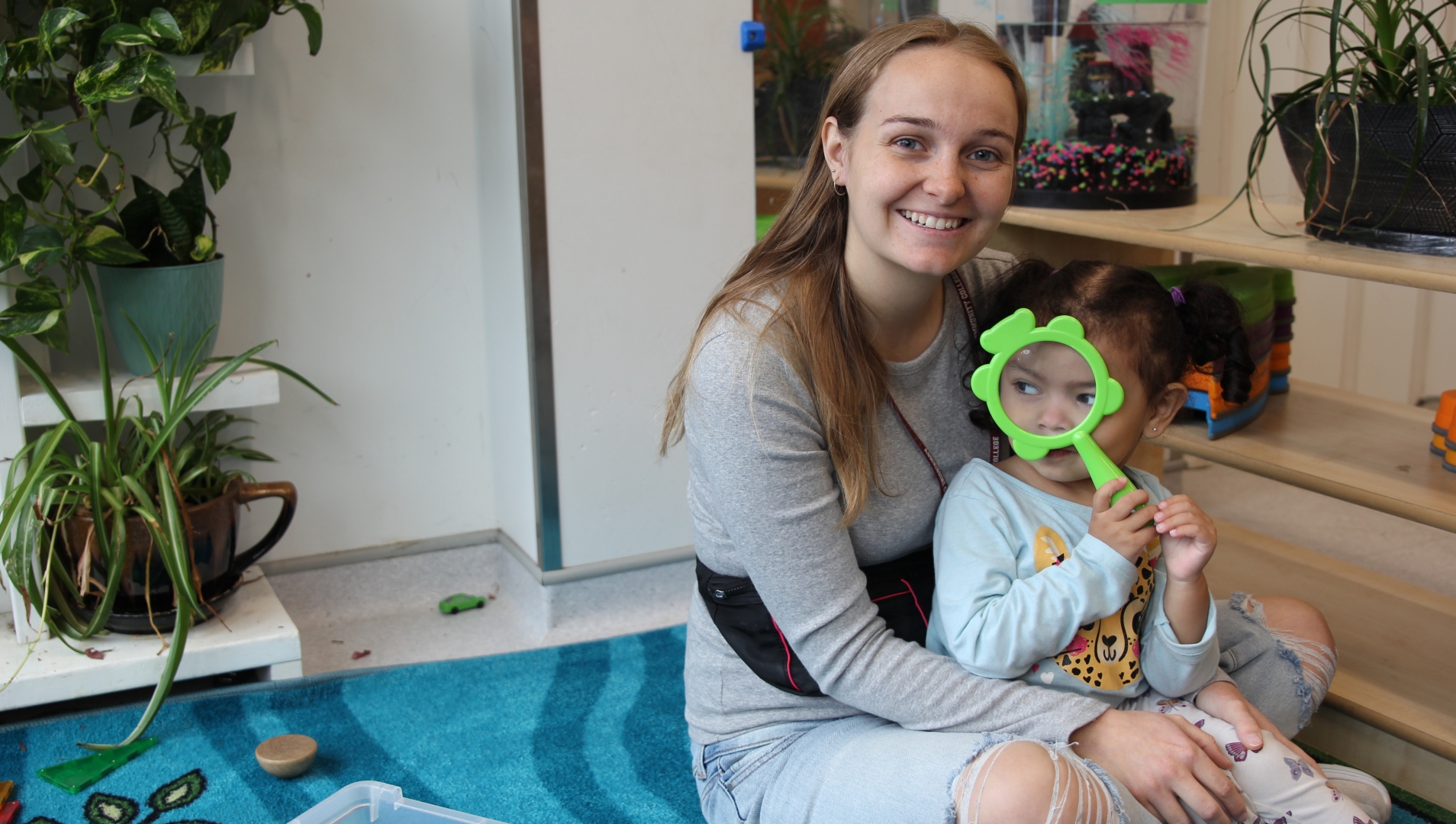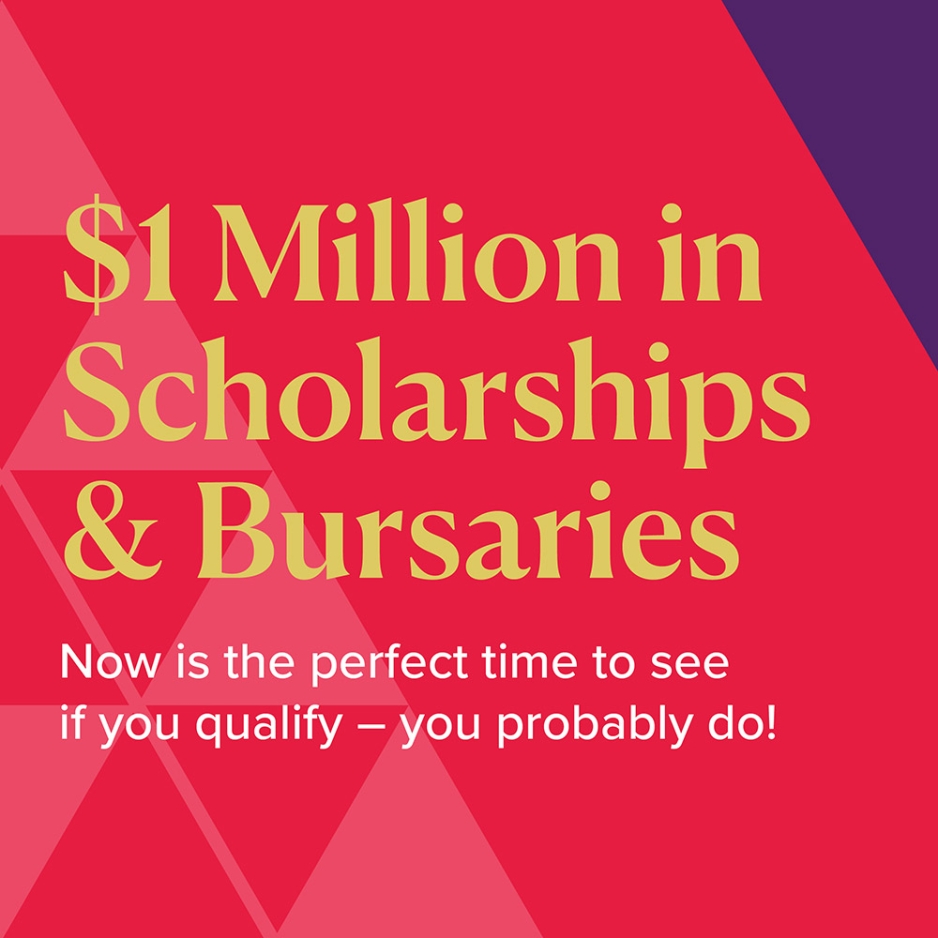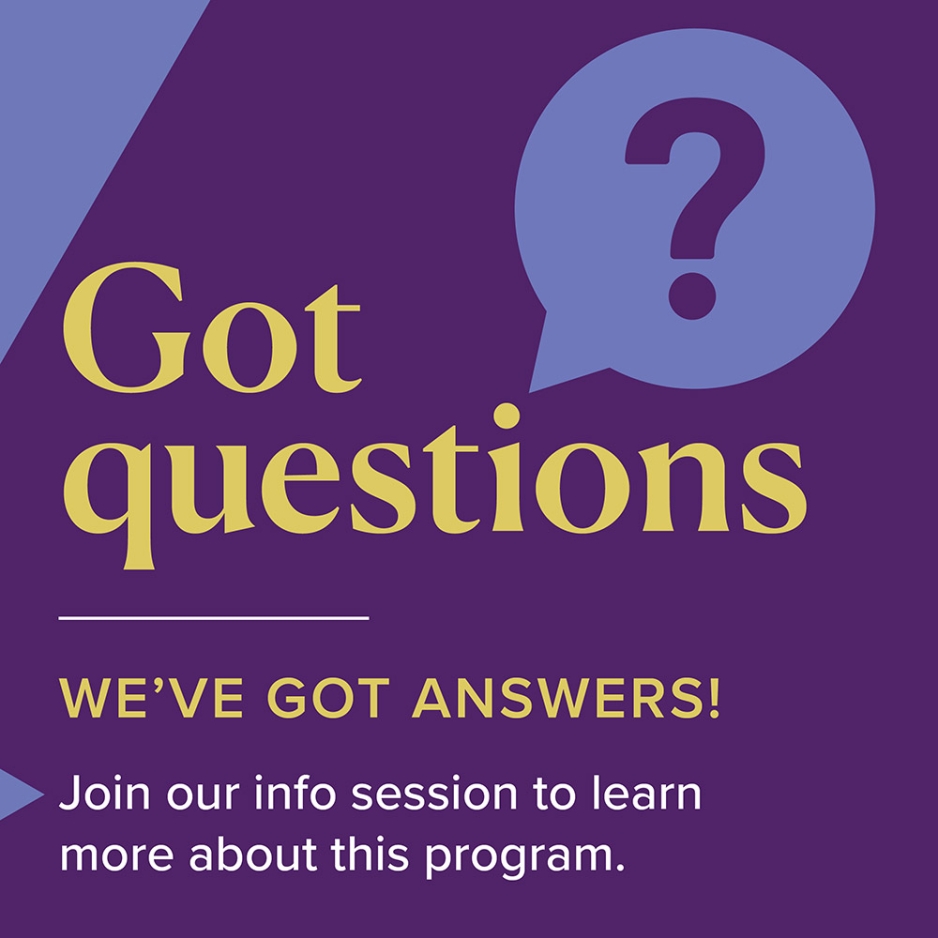ECE Accelerated Mentorship
Overview
Fast-track your career and earn your Early Childhood Education diploma in only 18 months with Assiniboine’s accelerated mentorship program. Through our partnership, you have the opportunity to work as a Childcare worker to gain valuable practical experience and earn an income, while completing your studies in class two days a week.
Early childhood educators plan, organize, and implement programs for children between the ages of infancy and 12 years. They lead children in activities to stimulate and develop their intellectual, physical and emotional growth and ensure their security and well-being.
Early Childhood Educators work in a variety of early learning and child care settings and work with infants and school-aged children in full and part-time programs.
KEEP ME IN THE LOOP!
Fill out the form below to receive more information about our program and related events.
Program Learning Outcomes
- Establish inclusive, culturally responsive, healthy, and safe play-based learning environments for all children, staff, and families.
- Facilitate physical, sensory, cognitive, communicative, creative, and self-development among young children through curriculum planning.
- Facilitate positive relationships among children and adults in guiding children’s behavior to support holistic wellbeing.
- Collaborate effectively with families and the community.
- Demonstrate professional conduct, documentation, and effective communication skills as an early childhood educator.
- Incorporate Indigenous perspectives and topics that honor and respect First Nations, Metis, and Inuit cultures through inclusive practices in early learning and childcare.
Graduates are able to:
- Establish inclusive, culturally responsive, healthy, and safe play-based learning environments for all children, staff, and families.
- Facilitate physical, sensory, cognitive, communicative, creative, and self-development among young children through curriculum planning.
- Facilitate positive relationships among children and adults in guiding children’s behavior to support holistic wellbeing.
- Collaborate effectively with families and the community.
- Demonstrate professional conduct, documentation, and effective communication skills as an early childhood educator.
- Incorporate Indigenous perspectives and topics that honor and respect First Nations, Metis, and Inuit cultures through inclusive practices in early learning and childcare.
Success Factors
You might be a good fit for this program if you would enjoy:
- Being part of a licensed profession and work in a regulated environment.
- Teaching and guiding young children.
- Planning and conducting activities.
- Working in a collaborative team environment or independently as the situation requires.
A valid driver’s license and access to a vehicle is strongly recommended given the potential need to travel for practicum placement.
The industry and program environment require individuals to:
- Follow clear rules and use organized methods to guide activities.
- Adhere to early childhood education professional and ethical guidelines.
- Complete responsibilities requiring crouching, stooping, bending, and standing.
- Stand and move about the learning environment and child care setting for an extended period of time.
- Work in shifts, schedules, and conditions that are unique to the industry.
- Perform static and physical tasks, such standing, crouching, and kneeling.
- Communicate effectively with others including coworkers, children, community members, and caregivers.
- Be reliable, punctual, and regularly attend work.
- Listen to direction and act on that accordingly.
INTERESTED IN EXPLORING SIMILAR PROGRAM OPTIONS?
We've got you covered! Here are some other great program options to consider.
Early Childhood Education ECE ACCELERATED MENTORSHIP - ONLINE
ARE YOU EDUCATED INTERNATIONALLY IN EARLY LEARNING OR CHILD CARE?
We've got a perfect option for you!
Admissions
Admission Requirements
- A complete Manitoba Grade 12 or equivalent
- English 40G/40S or equivalent with a minimum mark of 60%
- Proof of employment in a Manitoba Early Learning Centre
If you received your education outside of Manitoba, please review the equivalent admission requirements: Interprovincial or International.
English is the language of instruction at Assiniboine. All applicants educated outside of Canada or in a country not on the test exempt list are expected to meet the English language proficiency requirements.
READY TO TAKE THE NEXT STEP IN YOUR EDUCATION JOURNEY?
Start your online application today and join Assiniboine College!
DON'T MEET ADMISSION REQUIREMENTS?
If you don’t meet admission requirements, visit our Centre for Adult Learning to upgrade courses.
Careers & Connections
Careers
Positions are available in a variety of settings, including infant, pre-school and school-age programs, nursery schools, Head Start, and other Child and Family resource facilities.
Connections
The Early Childhood Education program is provincially accredited by the Child Care Qualifications and Training Committee (CCQTC). Graduates are eligible for classification from Manitoba Early Learning and Child Care as an Early Childhood Educator Level 2 (ECE II).
Assiniboine has a number of agreements with other colleges, universities and professional organizations, making it possible to apply credit taken at Assiniboine to programs at other institutions. For information on agreements, see Articulation Agreements.
Upon completion of this program, graduates will have the following certifications:
- Commit To Kids Online Training
Tools & Supplies
Program Checklists, Textbooks, and Supplies
ASSINIBOINE BOOKSTORE
Textbooks, supplies and uniforms may be purchased at the Assiniboine Bookstore at the Victoria Avenue East Campus. Booklists are available from your school office 30 days prior to the start date of your program.
Technology Requirements
Students in this program are required to bring their own laptop for use on-campus. The laptop must meet the technical needs outlined by the program. See Technology Requirements for detailed information.
Courses & Costs
Costs
Estimated Program Costs
| Year 1 | Year 2 | |
|---|---|---|
| Credits | 61.0 | 61.0 |
| Tuition | $3,780 | $3,720 |
| Course Fees | $950 | $920 |
| Students' Association fees (including Health Premium) | $580 | $580 |
| Estimated textbooks, tools, and supplies | $630 | $610 |
All fees are estimated and subject to change without notice.
Tuition Reimbursement
The governments of Canada and the Province of Manitoba offer an Early Childhood Education Tuition Reimbursement program to make ECE education more accessible to individuals entering the Early Learning and Child Care (ELCC) workforce and those working to obtain or upgrade their certification.
To learn more information, including who is eligible and how to apply, visit the Province of Manitoba’s webpage.
Courses
To graduate with an Early Childhood Education diploma, students must successfully complete 122 credits. The minimum passing grade for each course is indicated on the course outline. Course offerings are subject to change and may vary by intake.
Year One Courses
| Title | Credits/CEUs | Elective | Distance | PLAR |
|---|---|---|---|---|
Applied Practical Skills 1 (PRAC-0318)This course provides students with the opportunity to apply their first year of studies, knowledge, and skill demonstration to reflect in areas of the professional, the child, the environment, curriculum, and relationships. Students engage in a minimum 260-hour practicum field experience. |
1 credit(s) | No | No | No |
Art, Literature and Play (ECED-0056)This course examines the importance of art, dramatic play and literature in a play-based early childhood curriculum. It provides students the opportunity to develop engaging and inclusive activities to support creativity and self-expression as part of holistic development. |
6 credit(s) | No | No | No |
Children's Health & Well-Being (PSSY-0114)This course introduces students to the basic principles and practices of health and safety promotion, occupational health and safety, and illness prevention and management. Students explore the evidence-based research surrounding proper nutrition, active living, and social/emotional well-being as it applies to children from birth to age 12. Students learn how an integrated health curriculum supports the overall well-being of children and demonstrates respect for culturally inclusive practices, values, and traditions. This course includes an overview of the early childhood educator's roles and responsibilities in identifying, recording, and responding to child abuse and incorporating trauma informed approaches to support children and families in crisis. |
6 credit(s) | No | No | No |
College Foundations (PEDV-0356)This course improves students’ ability to navigate the college experience and environment, including student's rights, roles, and responsibilities. In this course, students reflect on their skills, attitudes, and expectations and develop learning strategies to help them to become successful, resilient, and self-directed learners. The course covers topics such as success in online learning, time management strategies, learning strategies, assessment taking strategies, academic integrity, information and digital literacy, and wellness, among others. It integrates elements of student orientation. |
0 credit(s) | No | No | No |
Communication Essentials (COMM-0411)This course provides students with an introduction to the theory and principles of communication. Students are able to demonstrate professional and academic presentations, using written and oral skills for employment in the field of early childhood education. |
6 credit(s) | No | No | No |
Family Dynamics (PSSY-0115)Early childhood educators must understand the significance of positive family relationships, as well as the role they play in supporting families. This course provides an opportunity to reach this understanding as students learn to create respectful, reciprocal relationships that support, empower, and engage families in their children's development and learning. |
6 credit(s) | No | No | No |
Guiding Young Children (ECED-0058)This course introduces students to the basic concepts of guidance and strategies early childhood educators employ to provide children with a nurturing and respectful environment in which to grow. Students also explore their own personal beliefs and values in regard to children's behaviour. They are introduced to indirect and direct guiding techniques and the early childhood educator's role in guiding routines and daily activities indoors and outdoors. Strategies to foster the development of a positive sense of self are explored. |
6 credit(s) | No | No | No |
Indigenous Perspectives (INDG-0010)This course serves as a foundational basis for Early Childhood Education students. Topics include: an overview of pre-colonial contexts, traditional child rearing practices, colonial expansions (treaties, disruption of Indigenous families and social structures, residential schools), current trends, cultural competency, the revitalization of Indigenous languages and how these issues impact Indigenous children and families. |
6 credit(s) | No | No | No |
Infant and Toddler Development (PSSY-0117)This course introduces the principles, processes and theories of human development. Influences on prenatal development and the newborn's capacities are explored. The physical, cognitive, language, emotional and social domains of development and milestones reached through infancy and toddlerhood are the focus of this course. |
6 credit(s) | No | No | No |
Overview of Early Learning (ECED-0061)This course provides an overview of the field of early childhood education. Students are introduced to the profession of early childhood education, the role, and qualities of the early childhood educator as well as several types of early childhood settings and to the provincial regulations for early learning and care. Learning to create play-based experiences based on observation are examined. The practice of planning, implementing, and evaluating a rich play-based curriculum for children is utilized to build skills to form the basis for implementing emergent curriculum. |
6 credit(s) | No | No | No |
Preschool Development (PSSY-0118)This course focuses on the development of the preschool child. The physical, cognitive, language, emotional and social domains of development and milestones of children ages two to six are explored through theory, research and observation. |
6 credit(s) | No | No | No |
Professional Practice (PEDV-0368)Professional skills are vital to the role of the Early Childhood Educator. Students examine the occupational standards for Early Childhood Educators and topics of confidentiality, professional conduct and a culturally responsive attitude. Students learn the process of applying for jobs in the field of early childhood education including resume writing, interviewing and gain knowledge in the job description of the Early Childhood Educator. An introduction to the purposes and outcomes of professional observation and documentation are presented. Occupational Health practices are explored as a key aspect to support the role of the Early Childhood Educator. |
6 credit(s) | No | No | No |
Year Two Courses
| Title | Credits/CEUs | Elective | Distance | PLAR |
|---|---|---|---|---|
Applied Practical Skills 2 (PRAC-0319)This course provides students with the opportunity to apply reflective practice, observation, planning, implementation, documentation, and assessment knowledge learned from various courses at the end of the two-year ECE diploma program. Students engage in a minimum 260-hour practicum field experience. |
1 credit(s) | No | No | No |
Building Partnerships (PSSY-0113)This course introduces students how to develop authentic, meaningful and respectful partnerships with children, families and community. Learners explore the importance of partnerships, strategies to develop cooperation and actively engage with stakeholders to build and maintain connections. |
6 credit(s) | No | No | No |
Creative Play and Design (ECED-0057)This course explores ways to transform an early learning and childcare environment. Students are exposed to provincial licensing regulations, guidelines, and best practices that affect the daily operation of an environment. They examine the elements of design and apply that knowledge by transforming a space within an early learning program. Students use observation to analyse children's indoor and outdoor play to create a rich and diverse climate for play and learning. |
6 credit(s) | No | No | No |
Curriculum Development (ECED-0051)This course explores modern day approaches that can be considered in the development of curriculum. The course guides students through the emergent and project approach to curriculum planning. Students analyse factors that affect curriculum including scheduling and the creation of an anti-bias environment. |
6 credit(s) | No | No | No |
Inclusion in Early Learning (PSSY-0116)This course provides an overview of the inclusion of children with additional support needs in early childhood settings. It examines the causes and characteristics of a variety of exceptionalities, as well as the effect on children's development. Existing practices of assessment, referral and intervention for young children are explored. The focus is on early childhood practices and procedures necessary for including children with diverse abilities in early childhood settings. |
6 credit(s) | No | No | No |
Language and Emerging Literacy (ECED-0059)Early Childhood Educators require knowledge and understanding of how to promote literate behaviours in early childhood programs. This course incorporates theory with related activities appropriate for literacy and language development required in the early childhood setting. Students also examine the topic of numeracy with young children and develop skills in stimulating communication among children and adults. |
6 credit(s) | No | No | No |
Music & Movement Through Play (ECED-0060)Students explore how music and movement supports healthy development, the role of the early childhood education in fostering play and creating anti-bias environments for play. Students further develop skills in planning music and movement experiences for young children. |
6 credit(s) | No | No | No |
School Age Development (ECED-0062)This course involves the study of the development of the school age child and adolescent. Through the study of theory, research and observation, students explore the physical, cognitive, language, social and emotional development and milestones of children ages six to twelve, as well as the stages of development that mark the transitions through adolescence. |
6 credit(s) | No | No | No |
Science Through Play (ECED-0063)Students further develop their skills in planning play experiences for children in the area of sciences. Students learn how to facilitate introductory experiences for young learners in their use of basic technology. Observations and activities are used to build skills in creating a rich responsive curriculum for children. |
6 credit(s) | No | No | No |
Teaching Strategies (ECED-0013)This course focuses on methods of playroom management and teaching strategies that are appropriate to meeting the needs of children. It also examines guidance techniques and discipline methods based on theoretical principles of child behaviour. |
6 credit(s) | No | Yes | No |
The Reflective Professional (PEDV-0369)This course provides students with essential knowledge as a part of professional reflective practice. Students examine professional and ethical behaviour, as advocates for the rights of children and families. Learners develop skills in reflective practice and critical thinking. They also develop a personal philosophy while comparing other program philosophies at various early learning and childcare settings. |
6 credit(s) | No | No | No |
Frequently Asked Questions
When is the next program information session?
Program information sessions are completely free to attend, and we invite you to bring a guest along as well. It's a good idea to register in advance so we know you're coming.
To find the complete schedule for our program information sessions and to RSVP, visit the program information session page.
How much can I get reimbursed with the ECE Tuition Reimbursement program ?
You can find details about the program, including reimbursement amounts, on the province’s website.
Am I eligible for reimbursement?
Eligibility requirements for this reimbursement program can be found here.
How do I apply for reimbursement?
Visit the following webpage to learn more about the application process and requirements
How do I get the proof of enrolment and tuition costs as required by the application?
The current application requires proof of enrolment and tuition costs be submitted alongside your application. You can locate these required documents on your Assiniboine Connect account. See the instruction sheet attached.
Am I eligible for reimbursement if my tuition was paid by a sponsor?
Please visit the tuition reimbursement webpage, which includes full program details, FAQs and contact information for the program:
I am thinking about applying to ECE in the future. Will I be eligible for reimbursement?
Eligibility requirements for the tuition reimbursement program, can be found here.




